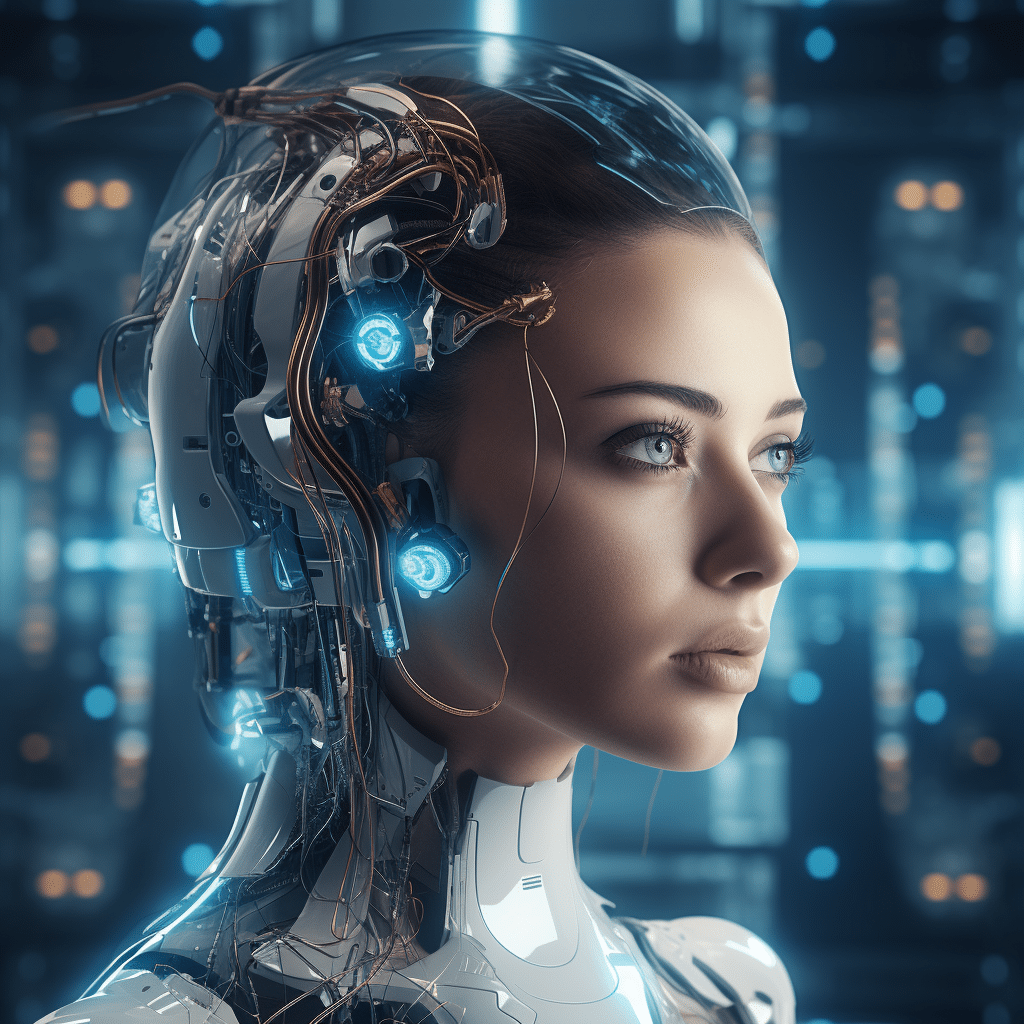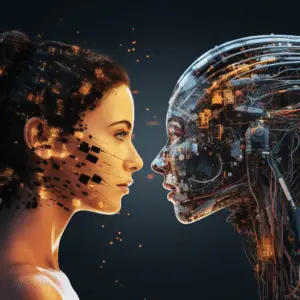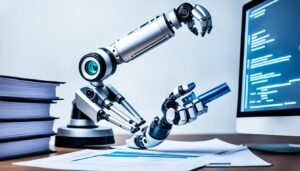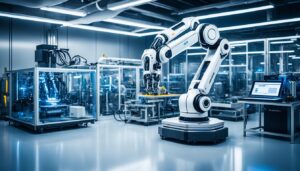
AI and Human Dignity: Ethical Boundaries in AI Development
AI Development, With the rapid advance of artificial intelligence (AI) technologies, our society is experiencing a significant transformation. The AI systems have become integral parts of our daily lives, from autonomous vehicles to virtual personal assistants. While AI offers numerous benefits and possibilities, it also raises crucial ethical questions regarding human dignity and the boundaries of its development.
One of the primary concerns regarding AI development is its potential impact on human privacy. AI systems are designed to process vast amounts of data, often personal and sensitive information. Without proper regulations and safeguards, our privacy could be compromised, risking our human dignity in the process. Establishing stringent guidelines and robust data protection measures becomes imperative to ensure the responsible development and use of AI.
Another critical aspect to consider is the potential discrimination inherent in AI algorithms. AI algorithms learn from historical data, which may reflect existing biases and prejudices in society. If unchecked, this could lead to the perpetuation of discriminatory practices and systemic inequalities, undermining the principle of human dignity for individuals subjected to biased AI decisions. Therefore, developers must actively address this issue by carefully designing algorithms and continuously auditing their outputs for potential biases.
“The development of AI must align with our values and respect the fundamental principles of human dignity.”
Ethical Boundaries in AI Development

The deployment of AI in autonomous systems raises questions concerning accountability and responsibility. AI-driven technologies, such as autonomous vehicles or medical diagnostics, rely on complex algorithms capable of making decisions on their own. When incidents occur, it becomes essential to define who is liable for any harm caused. Striking a balance between the autonomous capabilities of AI and maintaining human oversight is crucial to uphold human dignity and ensure appropriate accountability.
Moreover, the influence of AI on the job market and the potential displacement of human workers further necessitates ethical considerations. As AI becomes more capable and efficient, numerous job categories might disappear, leaving many individuals unemployed. To protect human dignity, policymakers and society must ensure the fair distribution of economic benefits and consider implementing comprehensive retraining programs to facilitate the transition into new employment opportunities brought forth by new technologies.
In conclusion, the rapid advancement of AI brings forth transformative possibilities while challenging the ethical boundaries that protect human dignity. As we continue to develop and deploy AI technologies, it is crucial that we establish appropriate regulations to safeguard privacy, address biases, ensure accountability, and protect the economic well-being of individuals. By doing so, we can harness the potential of AI while upholding the fundamental principles that define our humanity.
What are the potential risks or challenges that AI development poses to human dignity?
There are several potential risks and challenges that AI development poses to human dignity:
1. Job displacement and economic inequality:
AI’s increasing capabilities may lead to automation and job displacement on a significant scale, potentially resulting in economic inequality and loss of human dignity associated with unemployment and poverty.
2. Privacy and surveillance issues:
AI systems can gather and analyze vast amounts of personal data, raising concerns about individual privacy and surveillance. The misuse or mishandling of this data can lead to violations of human dignity, such as unauthorized profiling or discrimination.
3. Bias and discrimination:
AI algorithms can inherit the biases present in the data used to train them, leading to discriminatory outcomes in areas like hiring, lending, or criminal justice. These biases can perpetuate and amplify existing inequalities and undermine human dignity.
4. Lack of transparency and accountability:
AI algorithms often operate as black boxes, making it challenging to explain or understand the decisions they make. This lack of transparency and accountability can erode human dignity by depriving individuals of the right to know the reasoning behind AI-driven decisions that significantly impact their lives.
5. Dependence and loss of autonomy:
As AI systems become more capable and pervasive, there is a risk of humans becoming overly reliant on them, leading to a loss of personal agency and autonomy. This dependence on AI can undermine human dignity by eroding individuals’ ability to make independent decisions and control their lives.
6. Ethical implications:
AI development raises complex ethical questions. For example, the potential for autonomous weapons or AI systems that manipulate emotions raises concerns about human dignity and the potential for harm.
Addressing these challenges requires careful attention to ethical considerations, ensuring transparency, fairness, and accountability in AI development, and creating regulations and guidelines to protect human dignity in the use of AI technologies.
In what ways can AI development respect and uphold human dignity?
AI development can respect and uphold human dignity in several ways:
1. Transparency and Accountability:
AI systems should be designed and developed in a transparent manner, ensuring that the decision-making process is clear and understandable. This allows individuals to have a better understanding of how AI systems are making decisions that affect them and promotes accountability.
2. Non-Discrimination and Fairness:
AI systems should be trained and developed in a way that avoids bias or discrimination against individuals or groups based on their race, gender, religion, or any other protected characteristic. Developers should actively work to eliminate biases and ensure fairness in AI algorithms.
3. Privacy and Data Protection:
AI systems should prioritize the privacy and personal data protection of individuals. Developers should ensure that data is collected, stored, and used in a responsible and ethical manner, with explicit consent from individuals. Adequate security measures should be implemented to protect data from unauthorized access or misuse.
4. Human Control and Autonomy:
AI systems should be designed to enhance human capabilities and promote human autonomy, rather than replacing or diminishing human control. Humans should have the ability to understand, question, and override AI decisions when necessary, especially in critical domains like healthcare, justice, and education.
5. Beneficial Societal Impact:
AI development should prioritize the creation of technologies that have a positive impact on society and uphold human values. Developers should consider the potential social, economic, and environmental implications of AI systems and actively work to mitigate any potential negative consequences.
6. Ethical Frameworks and Guidelines:
AI development should be guided by ethical frameworks and guidelines that prioritize human dignity. Developers should adhere to principles such as fairness, transparency, accountability, and respect for human rights when designing and deploying AI systems.
7. Continuous Monitoring and Evaluation:
Constantly monitoring and evaluating AI systems is crucial to ensure human dignity and correct any biases or detrimental consequences. Conduct regular audits and evaluations to maintain ethical standards and accountability.
By addressing these aspects, AI development can prioritize and uphold the principles of human dignity, promoting ethical and responsible use of AI technologies.
What ethical principles should guide AI development to ensure the preservation of human dignity

There are several ethical principles that should guide AI development to ensure the preservation of human dignity:
1. Human-centered values:
AI systems should be designed and developed with a focus on promoting human well-being, respecting human rights, and preserving human dignity. The technology should aim to enhance human capabilities rather than replace or harm them.
2. Transparency:
Developers should strive for transparency and explainability in AI systems. Users should have a clear understanding of how the technology makes decisions or recommendations that may impact their lives. This allows for accountability and helps prevent the use of AI for unethical purposes.
3. Accountability:
Developers and organizations should be accountable for the behavior and outcomes of AI systems. They should address any biases, errors, or unintended consequences that may arise from the use of AI technology. There should be mechanisms in place to enable redress in case of harm caused by AI systems.
4. Fairness and non-discrimination:
AI systems should not perpetuate or amplify existing biases or discriminate against individuals or groups based on their race, gender, religion, or any other protected characteristic. Developers should ensure that AI systems are fair, unbiased, and provide equitable opportunities for all.
5. Privacy protection:
AI development should prioritize the protection of individuals’ privacy. User data should be handled with utmost care, ensuring informed consent, secure storage, and appropriate data anonymization techniques. Users should have control over their personal information and the ability to opt-out of data collection.
6. Human oversight and control:
AI systems should be designed to augment human intelligence, rather than replace human decision-making or agency. Humans should have the ability to understand, challenge, and override AI decisions when necessary. Developers should avoid creating AI systems that have the potential to harm or manipulate individuals without their knowledge or consent.
7. Social benefit:
AI development should prioritize the creation of technology that benefits society as a whole. Developers should actively consider the potential societal impacts of AI systems and mitigate any negative consequences. They should also work towards ensuring that AI is accessible and inclusive, bridging any digital divides.
By adhering to these ethical principles, AI development can ensure that technology serves the best interests of humanity and respects the fundamental principles of human dignity.









You really make it appear really easy along with your presentation however I to find this topic to be really one thing which I think I might by
no means understand. It sort of feels too complex and extremely wide for me.
I’m having a look ahead for your next submit, I will try to get
the dangle of it! Escape room lista
Real wonderful info can be found on site..